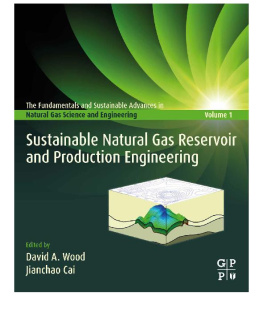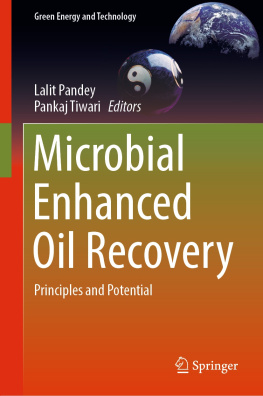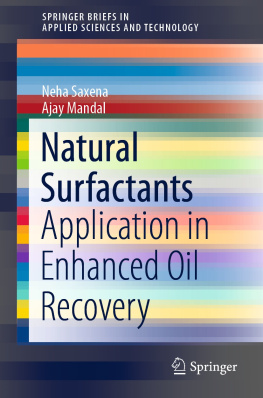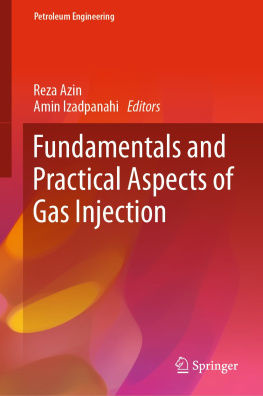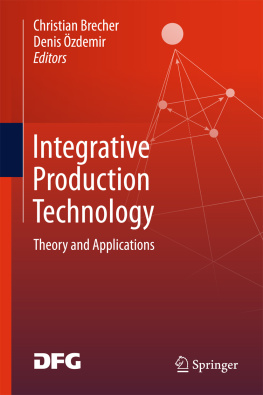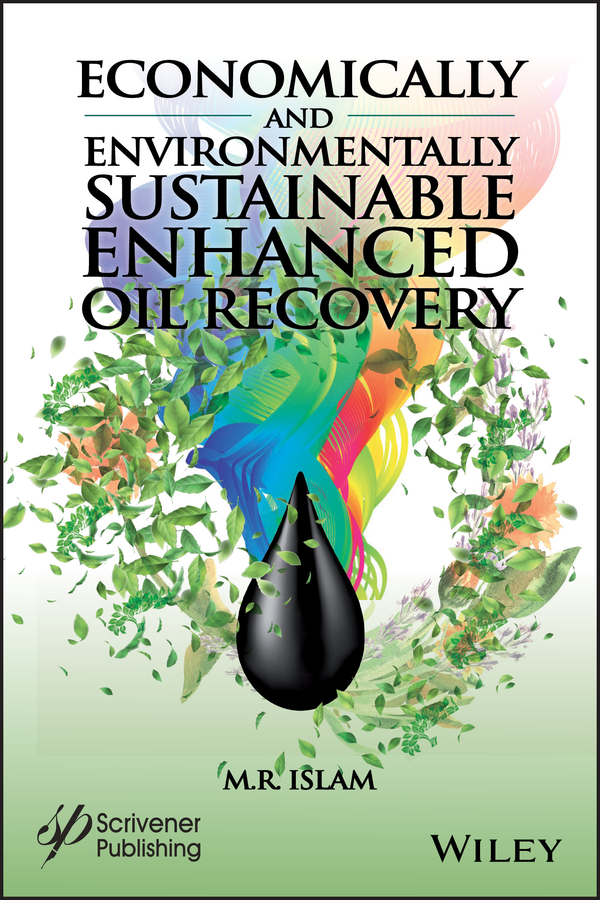
Table of Contents
List of Tables
- Chapter 2
- Chapter 3
- Chapter 4
- Chapter 5
- Chapter 6
- Chapter 7
- Chapter 8
List of Illustrations
- Chapter 1
- Chapter 2
- Chapter 3
- Chapter 4
- Chapter 5
- Chapter 6
- Chapter 7
- Chapter 8
Guide
Pages
Scrivener Publishing
100 Cummings Center, Suite 541J
Beverly, MA 01915-6106
Publishers at Scrivener
Martin Scrivener ()
Phillip Carmical ()
Economically and Environmentally Sustainable Enhanced Oil Recovery
M. R. Islam
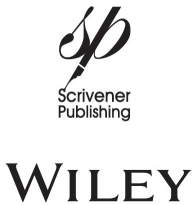
This edition first published 2020 by John Wiley & Sons, Inc., 111 River Street, Hoboken, NJ 07030, USA and Scrivener Publishing LLC, 100 Cummings Center, Suite 541J, Beverly, MA 01915, USA
2020 Scrivener Publishing LLC
For more information about Scrivener publications please visit www.scrivenerpublishing.com.
All rights reserved. No part of this publication may be reproduced, stored in a retrieval system, or transmitted, in any form or by any means, electronic, mechanical, photocopying, recording, or otherwise, except as permitted by law. Advice on how to obtain permission to reuse material from this title is available at http://www.wiley.com/go/permissions.
Wiley Global Headquarters
111 River Street, Hoboken, NJ 07030, USA
For details of our global editorial offices, customer services, and more information about Wiley products visit us at www.wiley.com.
Limit of Liability/Disclaimer of Warranty
While the publisher and authors have used their best efforts in preparing this work, they make no representations or warranties with respect to the accuracy or completeness of the contents of this work and specifically disclaim all warranties, including without limitation any implied warranties of merchantability or fitness for a particular purpose. No warranty may be created or extended by sales representatives, written sales materials, or promotional statements for this work. The fact that an organization, website, or product is referred to in this work as a citation and/or potential source of further information does not mean that the publisher and authors endorse the information or services the organization, website, or product may provide or recommendations it may make. This work is sold with the understanding that the publisher is not engaged in rendering professional services. The advice and strategies contained herein may not be suitable for your situation. You should consult with a specialist where appropriate. Neither the publisher nor authors shall be liable for any loss of profit or any other commercial damages, including but not limited to special, incidental, consequential, or other damages. Further, readers should be aware that websites listed in this work may have changed or disappeared between when this work was written and when it is read.
Library of Congress Cataloging-in-Publication Data
ISBN 978-1-119-47909-3
Cover image: All images supplied by Dreamstime.com; Rainbow Smoke: Nantapong Kittisubsiri | Oil Drop: Amnat Buakeaw | Trees: Christos Georghiou |
Leaves: Nadezda Kostina I Orange Flower Wreath: Darya Smirnova
Cover design by Kris Hackerott
This book is dedicated to the three creative geniuses that I have been blessed to call my children. They are: Elif Hamida Islam, Ali Omar Islam, and Jaan Sulaiman Islam.
M. R. Islam
Preface
But what good will another round of corefloods and recovery curves do?, quipped a Chemical Engineering professor over 3 decades ago. For a graduate student, whose PhD thesis (in Petroleum Engineering) is devoted to enhanced oil recovery in marginal reservoirs, that comment struck me with mixed emotions. My PhD supervisor was someone I would later characterize as academias most impactful petroleum engineering professor. The project that I was working on at the time was well funded by the government and industry consortium (translation: it was anything but a stale academic exercise). Even at its initial phase, the project was proving to be an academic masterpiece (it eventually broke the record for refereed publications for a PhD dissertation at least for that University). Yet, this project was reduced to a set of corefloods and recovery curves.
I had immense respect for the chemical engineering professor (I still do to this date), with whom I had a number of ground-breaking publications (that emerged from classwork), so I couldnt even garner enough courage to confront him or ask for an explanation. Fast forward a 2 decades, I was giving a pep talk to industry and government delegates on sustainable engineering, upon which a mechanical engineering professor turned into a quasi-administrator, with no background in energy research, exclaimed, Why are you focusing so much on society, where is engineering? Thankfully, it was the government partner that quieted down the vociferous colleague, schooling him, I thought sustainability is all about society
Fast forward another decade, I was lecturing on sustainable Enhanced Oil Recovery (the very same topic of this book) when I was ceremonially interrupted, But where is the research in it, Professor Islam? This time it was a physicist-turned materials engineer-turned Third World university administrator. Sadly, there was no government official to quiet him down, and to make it worse, a Third World-trained petroleum engineering professor chimed in, but where does petroleum engineering come in this? Clearly, they were expecting me to show more coreflood results and recovery curves!
Suffice it to say, in the last 3 decades, the engineering world has not moved a needle toward knowledge. Just like 3 decades ago, chemical engineers want you to implement chemicals without research, and demand that you just take their word for it. Materials engineers want you to focus on how to turn the valve on the well head, trusting them with the material engineering part. Sadly, petroleum engineers are then convinced that their research focus should include only yet another coreflood test and another way to do the material balance Type-curve fitting. University administrators meanwhile are strictly focused on keeping engineers caged within their puny research domain, tightly focussed on drilling a copious number of holes through the thinnest part of the research plank.
Today, I am no longer the wide-eyed graduate student wondering about the meaning of what professors have to say. It has been well over a decade that I pointedly asked how deep is the collective ignorance of the enlightened academia? Ignorance as I figured within years of stepping into academic life doesnt frighten me, it emboldens my resolve to write more. I decided to write a book on enhanced oil recovery that doesnt teach another way to measure the minimum miscibility pressure a phenomenon that doesnt occur in the field. Upon hearing this, my former graduate student (currently a university professor) said with utter desperation, But, Dr. Islam, thats the only thing we teach in EOR classes? The state of academia is not strong not even close. It is no surprise that this book is over 700 pages. It doesnt shy away from calling out the hollowness of the incessant theories and academic mumbo jumbo that produced storm in teacups. Of course, criticism is easy but one must answer the question, where is the beef? For every question raised, a comprehensive solution is given after demonstrating how modern-day researchers have failed and why they have failed. The book makes no apology for making a full disclosure of what true sustainability should be a far cry from the theme that has been shoved down the throat of the general public in the name of: sustainability should come with a price. The book shows, true sustainability is free as in sunlight. Why should that surprise anyone? Didnt we know best water (rain), best air (breeze), best cleanser (clay), best food ingredient (carbon dioxide), best energy (sunlight) they are all free?
Next page

